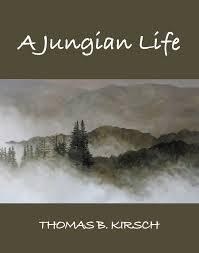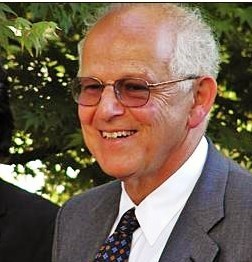by Thomas B. Kirsch
Fisher King Press, $23.39
Published: November 17, 2014
If anyone can legitimately claim to have lived A Jungian Life it would be Thomas B. (aka Tom) Kirsch. It wouldn't be an exaggeration to say that Jungian DNA oozes from his pores.
The son of renowned Jungian analysts James and Hilde Kirsch, Dr. Kirsch (a Yale MD by training) is also an accomplished Jungian practitioner in his own right. Born in 1936, he's also a bridge between the first generation of Jungians and those that followed the pioneers. Both his parents were early disciples of CG Jung and after immigrating to the U.S., founded the Jungian Institute of Los Angeles.
A consummate insider by dint of birth, Tom had a catbird seat to the comings and goings of movie-star patients, analysts, and sometimes their shenanigans. As a young man, he even had the opportunity to meet Carl Jung.
As an adult he took a leadership role in Jungian professional organizations, such as the Jung Institute of San Francisco and eventually as President of the International Association of Analytical Psychology.
Autobiographies can be a tricky proposition, but you don't find the author pontificating about his successes nor omitting lapses. A Jungian Life was written to tell his story, not to impress the reader with his scholarship and erudition. I get the strong impression he's self-conscious to a fault about portraying his life and times realistically.
His accounting of his own family's idiosyncrasies are refreshingly honest and unpretentious. He's not out to cast blame, he's telling you the psychological truths of his upbringing. He admittedly had an arrogant streak as a young man, but learned a few lessons. Throughout the book you can read between the lines that this is a compassionate guy. He's even sympathetic to wing nuts who sometimes caused him untold grief.
His prose is transparent, unvarnished, and easily digested. You don't have to be a Jungian analyst to understand his thinking or to get something out of this book. However, as a subculture, Jungians do have their own language. It helps to have a basic understanding of Jungian vernacular when he throws around terms such as "shadow," "transference," or "synchronicity."
Scattered throughout the book are nuggets that I believe would be of interest to both lay and professional Jungians. For instance, he discusses the perennial innuendo regarding Jung's purported Nazi sympathies. (Totally untrue, states Dr. Kirsch, based on a great deal of evidence, including letters between Jung and his own father, James).
Dr. Kirsch is one of the preeminent historians of the Jungian movement, and students of this subject will derive a great deal of pleasure from his work.
As the offspring of analysts who were part Jung's inner circle, he knew many of the influential analysts and camp followers who sat at the feet of the great man. Realistic thumbnail portraits of these individuals are sprinkled throughout the book.
Those who might have felt that Jungians were somehow above the fray when it comes to petty politics or all-too human foibles, such as lust, envy, or power, will realize that they are very much like the rest of us.
As president of the IAAP he had the responsibility of overseeing the standards and membership of the "CG Jung Club." For better and sometimes worse, he was immersed in the world of Jungian politics and doctrine. This often involved a great deal of travel to the far-flung and emerging provinces of the Jungian empire. He oversaw the growth and education of analyst communities in places as diverse as Brazil and Denmark. To his great satisfaction, he also helped kick start the establishment of Jungian communities in Taiwan and China.
His chapter on his tenure in the IAAP is often fascinating stuff if you're a confirmed Jungian but might be a bit too "inside baseball" for the average reader. (Most people won't care about the split between the Flemish- and French-speaking members of the Belgian Jung Institute).
That said, this attention to detail gives the reader an idea of how thoroughly researched this book is. If your life is dedicated to understanding the psychological truth, your autobiography had better be factual.
The memoir does a terrific job blending his life story and often painfully accrued self-knowledge, with insights into Jungian "society." Tom Kirsch was born into Jungian aristocracy and in a manner of noblesse oblige, has really given it all back to the community -- not to mention his patients. (It's interesting that the book's one omission was the service to his patients. Perhaps that's another book).
A Jungian Life is a must-read for anyone with a serious interest in Analytical Psychology and the contemporary history of the Jungian movement.
Rob Kay is a Honolulu-based writer with a life-long interest in Jungian psychology.

